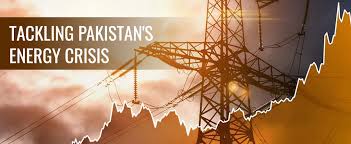Table of Contents
Introduction:
The energy crisis in Pakistan has existed since the inception of the nation, marked by frequent power outages, load shedding, and a severe shortage of electricity and gas supplies. energy crisis has become a significant barrier to the country’s economic growth and social development. As a result, Pakistan faces various challenges for households, industries, and the agricultural sector due to the lack of reliable energy sources. the energy crisis has also led to widespread public dissatisfaction and has become a critical issue for policymakers.

Origin of energy crisis in pakistan:
The energy crisis in Pakistan can be traced back to the early 2000s when the demand for energy began to outstrip supply. Rapid population growth, urbanization, and industrialization led to a surge in energy consumption, while the supply side failed to keep pace. This essay on energy crisis discusses how poor governance and a lack of long-term planning have contributed to the current crisis.
Current energy outlook in pakistan:
The current energy outlook for Pakistan remains challenging, but there are signs of improvement. The government has initiated several projects under the China-Pakistan Economic Corridor (CPEC) to enhance energy production, including coal-fired power plants and hydropower projects. However, the reliance on non-renewable energy sources continues to be a concern. A long-term solution requires a shift towards renewable energy and better energy management practices.
DOMESTIC ENERGY IN PAKISTAN:
Domestic energy in Pakistan is primarily derived from natural gas, oil, and hydropower. However, the country has significant untapped potential in renewable energy sources, such as solar and wind power. The domestic sector is heavily affected by the energy crisis, with households experiencing frequent power outages and gas shortages. we need for diversifying energy sources and improving energy efficiency at the domestic level to alleviate the crisis.
Causes of energy crisis in pakistan:
The energy crisis in Pakistan is the result of a combination of factors, including poor governance, inadequate infrastructure, and a lack of investment in renewable energy. The causes of electricity crisis in Pakistan often emphasizes the role of mismanagement and corruption which is exacerbating the crisis. Additionally, the country’s reliance on imported fossil fuels has made it vulnerable to global market fluctuations, further straining its energy resources.
Impacts of energy crisis in pakistan:
The energy crisis in Pakistan has had far-reaching consequences, affecting the economy, society, and the environment. The effect of energy crisis on Pakistan economy essay highlights how industries have suffered due to frequent power outages, leading to reduced productivity and job losses. Additionally, the crisis has caused widespread public discontent, with households facing daily hardships due to load shedding and gas shortages.
Solutions of energy crisis:
Addressing the energy crisis in Pakistan requires a comprehensive approach that includes both short-term and long-term strategies. The essay on energy crisis suggests that investing in renewable energy, improving energy efficiency, and resolving the circular debt issue are crucial steps. Additionally, encouraging private sector investment and implementing structural reforms in the energy sector can help alleviate the crisis.
Conclusion:
The energy crisis in Pakistan is a multifaceted issue that requires immediate and sustained efforts to resolve. By addressing the root causes, investing in renewable energy, and improving energy management, Pakistan can overcome this crisis and pave the way for a more sustainable and prosperous future. The energy crisis in Pakistan serves as a reminder of the urgent need for action to ensure energy security and economic stability in the country.
FOR MORE ARTICLES VISIT https://mastercssprep.com/category/write-up/

